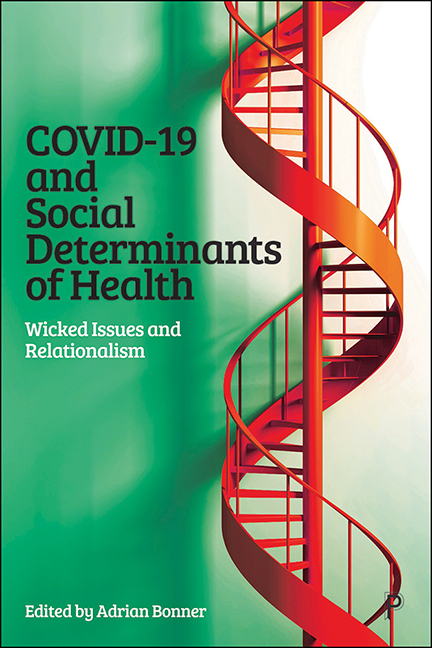Book contents
- Frontmatter
- Miscellaneous Frontmatter
- Contents
- List of figures and tables
- Notes on contributors
- Foreword
- Introduction
- Part I Wicked issues and relationalism
- Part II Regionalism and geopolitical environments
- Part III Public sector, COVID-19 and culture change
- Part IV The third sector
- Part V The case for relationalism
- Part VI Engagement and proposed changes
- Conclusion
- Appendix The Centre for Partnering
- Index
20 - The impact of ‘the lost decade’ on developing a relational culture in public–private partnering
Published online by Cambridge University Press: 18 January 2024
- Frontmatter
- Miscellaneous Frontmatter
- Contents
- List of figures and tables
- Notes on contributors
- Foreword
- Introduction
- Part I Wicked issues and relationalism
- Part II Regionalism and geopolitical environments
- Part III Public sector, COVID-19 and culture change
- Part IV The third sector
- Part V The case for relationalism
- Part VI Engagement and proposed changes
- Conclusion
- Appendix The Centre for Partnering
- Index
Summary
Introduction
The years 2010–2020 that economists often dub ‘the lost decade’ has been among the most volatile in modern British history. They included the Great Recession at the beginning, austerity economics and the convulsions of Brexit in mid-term and COVID-19 at the end. Each of these events were seismic on their own and yet were interwoven, creating a convulsion in the body politic unparalleled in postwar Britain. The resulting shift in public policy was to envisage a more interventionist role for the state and the need for a less confrontational, more relational culture between private and public providers, together harnessed to delivering social value for communities dislocated by recession, austerity and the pandemic.
The widening inequalities gap
The thread that ran through these years and which set the political priorities for the following decade was Britain’s widening socioeconomic inequality. The recession and its devastating impact on the public finances led to austerity and a stagnation in living standards for the lower paid, generating a resentment that found its expression in the vote for Brexit in the 2016 EU referendum. The pandemic then laid bare the socioeconomic inequalities that had been exacerbated by the recession and the negative impact of austerity on public services which the government from 2017 onwards felt compelled to address. One consequence was the reorientation of traditional political allegiances with an ostensibly right-wing Conservative government, elected in 2019 through the support of working-class pro-Brexit voters in England’s industrial North and Midlands, henceforth committed to removing regional economic inequalities and addressing social wicked issues through state intervention and public spending supported by private sector investment.
While therefore austerity through spending cuts in the first half of the decade signalled a downgrading of the state’s role, Brexit and the pandemic signalled the opposite through an unprecedented rise both in public spending and in the high profile role of key state services like the National Health Service (NHS) and local government in tackling COVID-19. The new political landscape marked a step change away from the traditional left– right divide as well as heralding a more pragmatic era in the relationship between public and private providers.
- Type
- Chapter
- Information
- COVID-19 and Social Determinants of HealthWicked Issues and Relationalism, pp. 366 - 375Publisher: Bristol University PressPrint publication year: 2023

